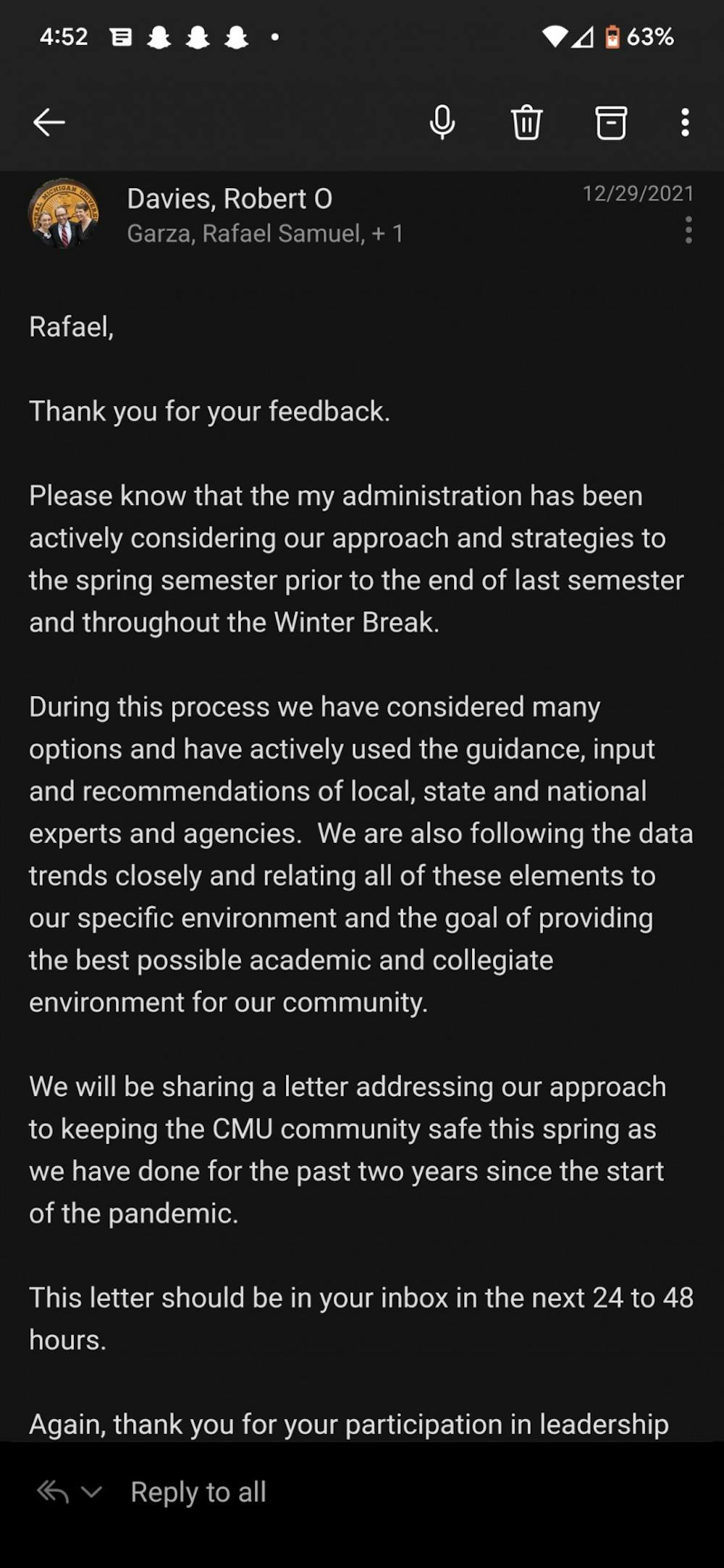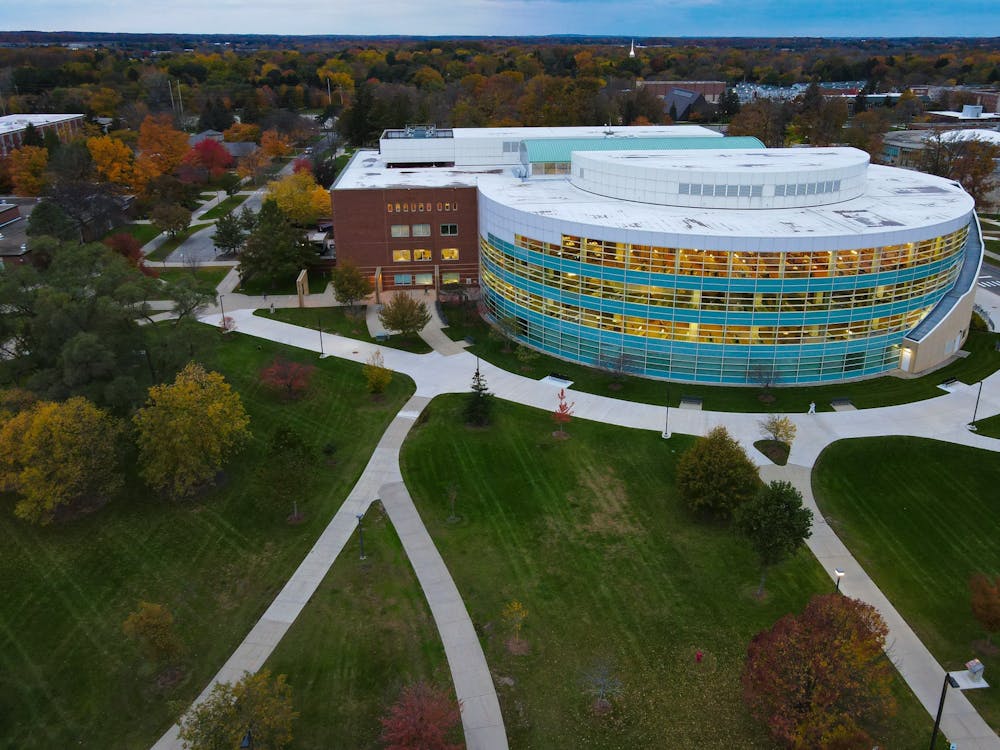Faculty, students show mixed feelings about in person start to semester
Some Central Michigan University students and faculty are worried as the semester starts in person among record numbers of COVID-19 cases and hospitalizations in Michigan.
Michigan State University and Oakland University moved forward in an online format. Others have elected to stay in person like the University of Michigan while having a vaccine mandate.
Amanda Garrison, president of the Faculty Association, is one concerned faculty member.
"We can't deliver the best teaching (and) we can't be present with you if we're worried about (COVID-19)," Garrison said.
Prior to cases rising across the United States, the FA had made an agreement with university administration that any meetings affecting faculty working conditions would have an FA member present.
Garrison said that there was no meeting that occurred during the winter break where faculty were able to voice concerns about the upcoming semester.
She expressed concern for absences that will occur during the semester as cases rise.
"I've had four or five COVID-19 cases and class has not even started," Garrison said.
Garrison said using Webex to teach sick students makes her job harder because she has to engage with two groups of students at once. It is more difficult to teach the online students, she said.
"If you've got a class online and a class (in person), you're working for two classes at the same time, I can't do that," Garrison said.
Garrison has taken extra steps in her classes in an attempt to mitigate spreading the virus, where people who do not live together must sit apart.
Other faculty members have not encountered such issues. Biology department member Shasta Sabo said she has not had any absent students. She does, however, record lectures in case students were to miss material.
"In my experience, the students are doing well, the faculty are doing well and we've adapted to it," Sabo said.
Some students are concerned about how absences may change their learning. Farmington junior Sammy Garza started a petition during the winter break asking the administration to start classes in an online format.
The petition, titled "A Call for CMU to Prioritize Students Academic Well-Being," gained 808 signatures as the semester began.
Garza's concerns also surround how students will do if they are forced to be quarantined during the first week as cases rise.
"Students will be missing the first week of classes and this will cause them to fall behind before we even get started," Garza said.
Other students are less concerned.
Clarkston freshman Hailey Hibberd was confident that "higher-ups knew what they were doing."
"We wouldn't be here without a plan," Hibberd said.
Hibberd hoped that keeping up vaccination rates among students would keep people safe, although she has noticed an increase in absences in classes.
Garza sent the petition via email directly to President Davies prior to posting the petition online. The reply to this email indicated that the administration had been considering the university's approach since before the end of last semester and throughout the winter break.
The reply from President Davies also stressed the use of guidance from local, state and national experts while "following the data closely."
Michigan saw record numbers of COVID-19 cases on Monday with 49,011 cases being reported by The New York Times. This is the highest rate of infection for COVID-19 since the beginning of the pandemic.
While CMU has returned to campus in person, there is a requirement for a booster vaccination to be considered fully vaccinated. Those who do not wish to be vaccinated, or do not receive the booster if they are eligible, are required to do weekly testing.
Additional changes occurred with the quarantine guidelines, where students who are vaccinated and asymptomatic may only need to quarantine for five days if they test negative at the end of the quarantine.
Shaun Holtgreive, interim associate vice president for student affairs, is confident that the current safety measure will keep students safe for the winter semester.
Holtgrieve has said that discussions have happened considering online learning, but CMU is "one of the safest places to be in the state."
"The President is continually evaluating the data as it comes through weekly," Holtgreive said.
Discussions will continue to occur throughout the semester as the data is monitored he said.








